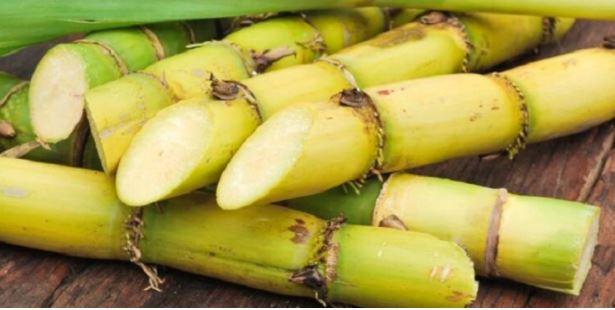Nigeria’s sugar cane import surged by 61.31% to N425.6 billion in 2021, compared to N263.84 billion spent in the previous year and representing 2% of the country’s import bill in the review year.
This is according to data tracked by Nairametrics from the foreign trade report, released by the National Bureau of Statistics (NBS).
According to the data, this is the highest amount spent on sugar cane importation since Nairametrics started tracking the numbers.
A further look at the data shows that the amount recorded in the review year is 150% and 166% higher than the N170.14 billion and N160.14 billion recorded in 2019 and 2018 respectively. It is also worth adding that the sugar cane is basically imported from Brazil, which is a major producer and exporter of sugar in the world.
Cane sugar, which is used for sugar refinery as stated by the NBS is one of the major items gulping significant scarce FX resources in the country. Notably, sugar cane gulped the second highest import value for food items in 2021, only topped by durum wheat.
Optics
- The Nigerian sugar production industry has continually lagged in recent year, which in turn creates a supply gap in the country and necessitates huge importation to bridge the gap.
- Specifically, out of the estimated annual demand of c.1.7million metric tonnes for sugar in 2020, 93% (c.1.5million metric tonnes) were imported.
- The continuous reliance on foreign imports is having an adverse effect on the country’s FX reserve and as a result piling more pressure on the exchange rate.
- The federal government through its National Sugar Master Plan (NSMP) has made efforts to attain self-sufficiency in sugar, however, the project is yet to record impressive progress considering local production still accounts for less than 10% of annual demand.
- In the same vein, the Central Bank in 2021 issued a circular stating that only sugar refining companies with considerable progress in achieving an agreed backward integration plan will be allowed to source FX from the official window to import sugar into the country.
- According to the circular, these companies were BUA Sugar Refinery Limited, Dangote Sugar Refinery, and Golden Sugar Company. Although the apex bank directed authorized FX dealers not to provide foreign exchange to any company, including the three companies, without its prior and express approval.
Backstory
Recall that the federal government together with the operators of the Sugar backward integration programme in December 2021 launched a $73 million intervention fund for sugar irrigation in Nigeria in a bid to boost sugar production in the country.
According to Nigeria’s Trade Minister, Mr Niyi Adebayo, “The intervention is the setting up of a 73 million-dollar-intervention fund for irrigation, for operators of the Sugar backward Intervention Programme.
“The goal is to support the development of irrigation infrastructure on 10,000 hectares of sugar plantations located in six sites in Numan (Adamawa State), Sumti (Niger State), Lafiagi (Kwara), Bacita (Kwara) as well as Toto and Tunga, both in Nasarawa state.”
He said that the aim is to increase significantly the sugar yield so that we can work within the National Sugar Development master plan, with a view to Nigeria becoming self-sufficient in sugar production and possibly becoming a net exporter of sugar.
“This would save the country the large bill that it presently incurs in foreign exchange for the importation of sugar,” he said.
What this means
- The significant increase in sugar import bill is an indication that Nigeria is still very far from attaining self-sufficiency in sugar production despite concerted effort by the federal government and the Central Bank of Nigeria to spur growth in the sector and improve local production.
- Nigeria has been suffering from FX crunch in recent years especially following the covid-19 pandemic as inflows dropped drastically, plummeting the nation’s reserve until the securing of more external debts were able to push the reserve level back to the region of $40 billion.
- Africa’s richest man and Chairman of Dangote Sugar Refinery, Aliko Dangote stated in 2021 that the strict compliance to Nigeria’s sugar master plan can save the country from spending about $700 million in FX.

